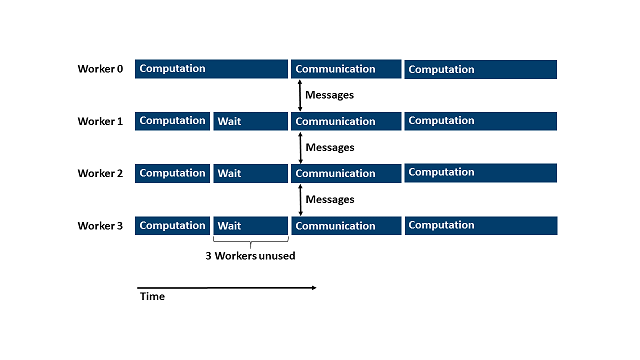High Performance Computing
The art of high performance computing consists of the optimal distribution of the work, such that all elements of a supercomputer are at every point performing useful computations. For the case of energy system design optimization, this is challenging since at large parts the currently available optimization algorithms are distributeable to only a limited extent, if they are at all.
Therefore, within the METIS project we are following the approach to decompose the optimal energy system design problem into useful work packages, which can be processed on separate workers of a supercomputer independently. Such, we can make use of the unique computing resources of the Jülich Supercomputing Centre (JSC) and access their innovative High Performance Computer (HPC) architectures. The advantage will be that the total complexity of the whole energy system design problem can increase and more robust and reliable design solutions will be found.
Part of this task is the minimisation of the communication between the workers. Approaches for this are located on all layers from the software to the hardware perspective. At last, a successfull decomposition, from the perspective of the executing supercomputer, depends heavily on the regularity of needed communications between the workers. If a worker has to wait consistently for new data of another worker, valuable computing time is wasted. All these challenges lead to limitations of the maximally solvable dimension.
 Figure 1. Sketch showing a suboptimal distribution of work under multiple workers.
Figure 1. Sketch showing a suboptimal distribution of work under multiple workers.
Therefore, a subtask of METIS is to improve the communication inside the solving algorithms to minimize the wasted computing time and to maximize the scaleability of the solving algorithms.

